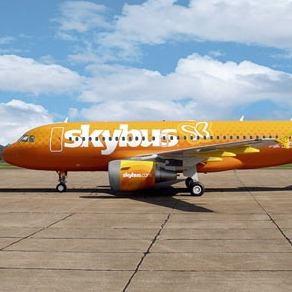The Travel Detective
News Analysis: What The Battle Between Airlines And Online Travel Agencies Means For Travelers
 Confused by the ongoing battle between airlines and online travel agencies?
Confused by the ongoing battle between airlines and online travel agencies?
Peter checked in with aviation analyst Mike Boyd of The Boyd Group to explain the controversy and how consumers are the ones paying the price.
Peter Greenberg: We have a situation where, and this happened in the hotel business years ago, where a lot of the third-party Web sites, or online travel agencies (OTA), went to the hotels and said, “You’re only filling 40 percent of your rooms. Why don’t you let us sell some of your unsold inventory? At least you’ll get something as opposed to nothing.” So they made a deal with these guys, and that’s the Expedias and the Orbitzes and the Pricelines of the world.
Well, before they knew it, Expedia and Orbitz and Priceline were selling almost all their inventory, and the hotels were getting almost nothing. There was a big push, and at one point one big chain, InterContinental, threw Expedia out of the system. Now they’re all back kissing and loving each other again.
But that’s not the case right now in the airline business because the same model was applied to the airline business when they weren’t selling a lot of seats, and they had a lot of excess capacity. Well guess what? The airlines right now are filling on average about 87 percent of their seats, and there’s a turf war going on now as to who gets to sell the tickets, and who gets to keep the money.
The latest news in the online booking battle:
Mike Boyd: I think it is shaping up very similar to what we saw about 15 years ago when brick-and-mortar travel agencies still thought they had control, and they’re mostly gone now from the retail side. That’s the way this may turn out for Orbitz and Expedia and these other ones if they’re not careful.
 PG: The bottom line is for a consumer is that I am a little worried that we’re taking away a lot of our options to be good comparison shoppers.
PG: The bottom line is for a consumer is that I am a little worried that we’re taking away a lot of our options to be good comparison shoppers.
MB: That’s absolutely so. However, Southwest is not on most of these [OTAs] anyways. Even when you buy a car you don’t comparison shop. If you don’t have a source readily available to comparison shop; you’ve got to do it yourself, and I think that’s what it is going to get back to. But I think American Airlines is right in the sense that it’s our product, we’ll sell it the way we want to. We don’t need you nor do we have to give it to you. As for the consumer, well that’s always the last consideration in these things.
PG: I’ll give you an example of what happened to me. I’m a big fan of talking to human beings anyway, and not going online. From my experience, not all the available inventory is online. It is what is made available online by the travel providers. A couple of weeks ago I wanted to buy a ticket from Los Angeles to New York. I went on the American Airlines Web site and the cheapest ticket I could find was $739. I then picked up the phone and called the American Airlines reservation agent and I found a similar non-stop flight for $218. They had decided to match one of the low-airfare carriers, Virgin America, in that market, but they didn’t put it out on the Web. That’s my reason for talking to a human being and being a comparison shopper that way.
Find more strategies to save in our Budget Travel section.
 But then there’s another story Mike, and then I want you to respond to that, where it is Web site to Web site. Where I went on the US Airways site for the Washington shuttle, a flight that lasts all of 38 minutes, and the cheapest fare on any of their hourly departures was $296 each way, so that’s a round-trip of about $600. I mean I could have gone to London for that. Then I went on Orbitz and found the exact same flight for $51. I guess you have to ask yourself at that point, what inventory was Orbitz getting rid of at that point that US Airways didn’t know about? I think that’s one of the reasons the airlines want to bring all this inside now.
But then there’s another story Mike, and then I want you to respond to that, where it is Web site to Web site. Where I went on the US Airways site for the Washington shuttle, a flight that lasts all of 38 minutes, and the cheapest fare on any of their hourly departures was $296 each way, so that’s a round-trip of about $600. I mean I could have gone to London for that. Then I went on Orbitz and found the exact same flight for $51. I guess you have to ask yourself at that point, what inventory was Orbitz getting rid of at that point that US Airways didn’t know about? I think that’s one of the reasons the airlines want to bring all this inside now.
MB: I have to agree. I think this stuff about always finding the lowest fare on our Web site just isn’t true. I’ve gone on the airline site as you have, and then gone on an Orbitz or Travelocity and found exactly the same sight flight; exactly the same seat for less money. So you’re still going to have to comparison shop no matter what you do. But you’re right, they have these last-minute things or these ones they don’t want to tell you about. I don’t know what the consumer does, but whatever happens with this American/Orbitz/Expedia deal the consumer still has to look at other options sometimes.
Find out Peter’s latest thoughts on travel in his Travel Detective Blog.
PG: By the way it’s not just American. Delta Air Lines has already taken itself off listings on three Internet sites. Now one of the options that might be for us to be good comparison shoppers is literally to go overseas on the Web. I found a site that is based in Denmark called Momondo.com.
 It is a search aggregator like Kayak, and they are actually on 700 different Web sites to try and find you a deal. So there’s still hope to be a comparison shopper if there’s still 700 sites out there offering inventory.
It is a search aggregator like Kayak, and they are actually on 700 different Web sites to try and find you a deal. So there’s still hope to be a comparison shopper if there’s still 700 sites out there offering inventory.
MB: I think something like that, which will aggregate in one spot up to 100 or up to 1,000 sites is great. But I think it is always going to be changing like this. Remember in the airline industry, it is their product. They see what Southwest is doing, and I think they want to just do like they did with bricks-and-mortar travel agents, which were not really well liked. Now that they don’t need them, they don’t use them.
PG: Now, there’s also the aspect of capacity. If the airlines have reduced the capacity, at least domestically, and they are filling 87 percent of their seats, do they need anybody?
MB: That’s just it. And there’s not new capacity coming on-line. First quarter of 2011 versus first quarter of last year: departures are up less than 1 percent, capacity would be up about 2 percent, but that is more a function of different airplanes. They’re not adding anything. In the last 75 days we’ve seen Southwest cut back some of their increases, so in terms of having a lot of excess capacity that we have to load for nothing: that is getting less and less.
Could Google shake up the online travel industry?:
PG: And of course historically, when we had airfare wars, it was usually started by the weakest competitor. The big carriers would match it, knowing full well that they couldn’t make a dime on it, but that they could lose money longer than the low-fare carrier could. And then when the low-fare carrier went out of business flying at 100 percent capacity, then the airfares would go up. Now, nobody is starting a low-fare war, because nobody has had a bad year. Now it is just the opposite. When another major carrier used to increase fares and one of their competitors didn’t go along, then that airfare increase wouldn’t hold up. Well, Mike you know what is going on now. Somebody increases the fare, and they all go along.
 MB: Oh yeah, they all do. And we’re not talking to each other except by electronic means, and there are no lunatics out there. I mean the kind of crazy people we saw two years ago with Skybus, which had $9 fare, or proposed a JetAmerica thing at $10. There’s none of those out there to sort of upset the apple cart. I think in the long term for the consumer to have airlines come and go is not good, and to have a stable system is better. I think we’re headed in that direction.
MB: Oh yeah, they all do. And we’re not talking to each other except by electronic means, and there are no lunatics out there. I mean the kind of crazy people we saw two years ago with Skybus, which had $9 fare, or proposed a JetAmerica thing at $10. There’s none of those out there to sort of upset the apple cart. I think in the long term for the consumer to have airlines come and go is not good, and to have a stable system is better. I think we’re headed in that direction.
PG: Of course one of the things you’ll be looking for I hope, on The Evening News in the next couple of weeks is what this really means to the frequent-flier programs. What is the incentive for airlines to give away seats when they don’t have to?
MB: People say what is going to happen with these mergers that has taken place. And the answer is nothing. You’re still not going to be able to find a seat to Hawaii, so forget it.
PG: Wow, what a bearer of good cheer in this new year.
MB: I think it is going to be a stable year for the airline industry, weakening traffic, but I think US airlines can get through it. But the consumer is going to pay more. There is just no way out of that. We’re going to be paying more to fly.
By Peter Greenberg for Peter Greenberg Worldwide Radio.
Related links on PeterGreenberg.com:
- American Airlines Wins Injunction Against Sabre As Online Booking Battle Continues
- Sabre Dumps American Airlines As Online Booking Wars Heat Up
- FairSearch Adds Members In Opposition To Google’s Acquisition of ITA Software
- Expedia Protests American Airlines Decision By Hiding Its Fares
- US Airlines Bullish For 2011: More Fees For Travelers
- Delta, American Airlines Pull Fares From Some Third-Party Web Sites
- American Airlines Leads America’s Airlines In Domestic Airfare Increase












